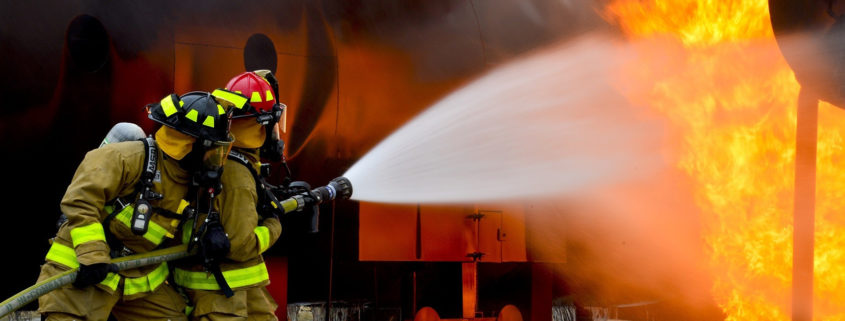Loss Prevention for Your Business Due to Fire: What You Can Do
Insurance and the steps you take in effective loss prevention work together to help keep you, your employees, and your business safe in the case of fire loss to your business.
As a business owner, you need to know the risks you potentially face. By understanding common risks and taking action to effectively mitigate those risks, you can prevent potential significant losses.
Some risks are obvious, while others are unearthed by a qualified professional, someone who knows where to look and what questions to ask. To learn more about the various means of loss prevention, talk with your broker to identify trouble before it happens and suggest ways to control, reduce or eliminate risks altogether.
Fire is certainly catastrophic when it destroys the physical property of your business. However, a lesser known and often more significant risk is the damage it can do to your business operation due to fire loss.
Closing operations even temporarily, moving to an interim location and significant inventory loss following a disaster can threaten to shut down your organization permanently. In fact, as many as 40 percent of businesses forced to close following a disaster never open their doors again.
The most common causes of business interruption (BI) loss are fire and explosions, accounting for over 59 percent of BI claims worldwide. And, most of these are due to human error or technical failure, making workplace fires often avoidable.
Property owners and managers can both reduce their risk of explosion or fire loss, and at the same time, secure better property and business interruption insurance, terms, conditions and pricing with the following tips:
- Plan for the unthinkable. Be sure that you have developed a comprehensive emergency response plan. A thoroughly thought out response plan will provide communication guidance procedures for fire, emergency personnel, and local utilities. The plan should be drilled periodically, with emergency exits clearly labeled, paths well-lit and unblocked. Don’t forget, too, to outline an emergency vendor list, including the following: your insurance broker claims representative, a disaster restoration/remediation contractor, a fire protection contractor, an electrician, a plumber, and other relevant and qualified professionals and trades.
- Practice regular housekeeping. Don’t let dust or dirt accumulate on electrical equipment or motors and store flammable/combustible liquids in UL or FM approved cabinets. Designate outdoor smoking areas at least 20-ft. from the facility, ensure all combustibles are kept at least 36-in from electrical boxes and panels and maintain 18-in. of clearance from the top of storage units to the automatic sprinkler heads.
- Prioritize preventative maintenance. Have a licensed electrician perform routine inspections and maintenance and inspect your facility for visible electrical deficiencies on a routine basis. Open or damaged electrical panels, use of extension cords as permanent wiring, electrical tape repairs to wiring and missing ground prongs are common fire hazards that can easily be addressed.
- Ensure “hot work” is kept cool. Welding, grinding, brazing, and cutting tend to be common causes of workplace fires. Establish a formal permit system that indicates the scope and location of hot work and conduct pre- and post-work inspections to identify potentially hazardous conditions in the work area. Provide a fire extinguisher within 25 feet or less of the work area, and implement a dedicated fire watch during all hot work and one hour past work completion.
- Keep your fire suppression and protection equipment up-to-date. Proper inspection and maintenance of your automatic sprinkler system are the most effective protective measures in preventing fire damage. Make sure they are installed and serviced by a licensed, insured and qualified contractor in accordance with regulatory standards. Similarly, monitor the system with central station alarms attended to 24/7/365.
Businesses don’t think twice when securing fire and general liability policies to protect their property. But, not everyone thinks about backing their business entity, which still needs to run even if your facility is burned to the ground.



